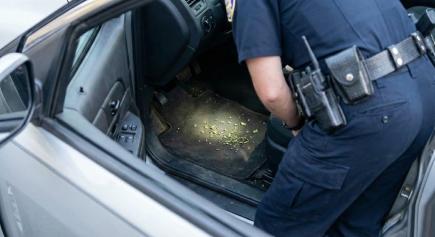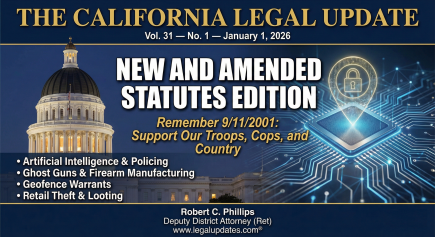

- Ref # CAC00138
- April 28, 2024
More on Prolonged Detentions: Careful Not to Stray from the ‘Mission of the Traffic Stop’
Diverting from the “mission of the traffic stop” to investigate other possible criminal violations for which there is no reasonable suspicion may convert an otherwise lawful traffic stop into an illegally prolonged detention.
- Prolonged detentions
- Mission of the traffic stop
- Reasonable suspicion
- Criminal investigations unrelated to the mission of the traffic stop
During a traffic stop for an observed traffic violation, an officer has about 10 or 11 minutes to complete the “mission of the traffic stop.” Using that time, however, to conduct an unrelated criminal investigation, including the use of a drug sniffing dog around the detainee’s vehicle, constitutes an illegally prolonged detention.
During the early afternoon of March 16, 2018, an undercover officer told an Anaheim police officer, who had a drug-sniffing K-9 partner named “Titan,” that the driver of a specific pickup had been at the Tampico Motel and had “acted suspiciously,” whatever that means. The officer knew that drug trafficking was a problem at that motel. With this knowledge, he located the truck and followed it in his marked police car when he (conveniently) observed the driver of the truck make a quick lane change, cutting off another vehicle. (Veh. Code, § 22107, ....
© 2026 Legal Updates, LLC.
This content is protected by copyright law. Republishing or redistribution in any form without written permission is strictly prohibited. For licensing or reprint requests, contact support@legalupdates.com.



![Warrantless Searches: Do You Know the Difference between ‘Community Caretaking’ and ‘Render[ing] Emergency Assistance?’](/sites/default/files/styles/435_x_242/public/2026-01/GAImage-rb5oktrb5oktrb5o-01242026.png)




